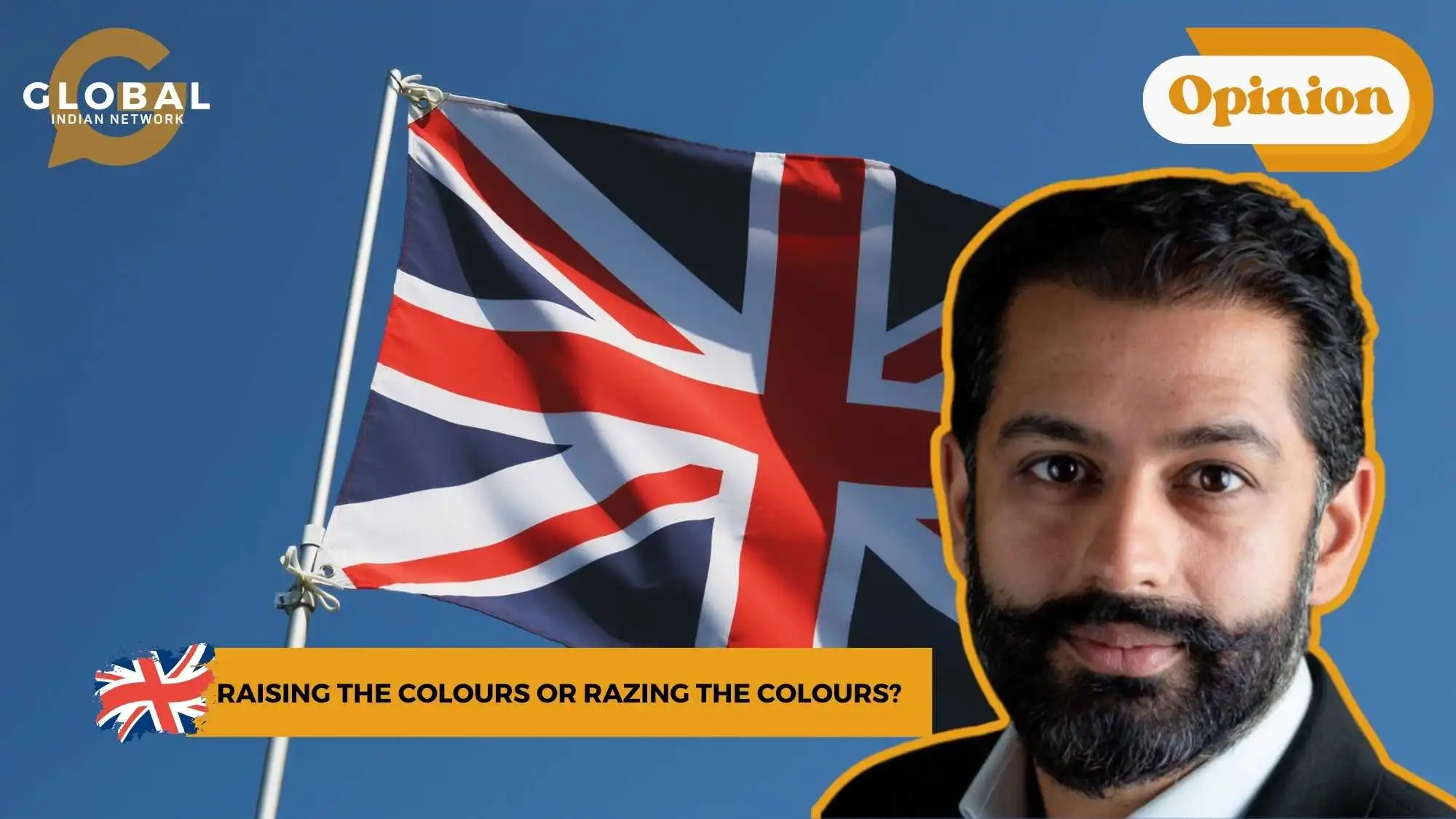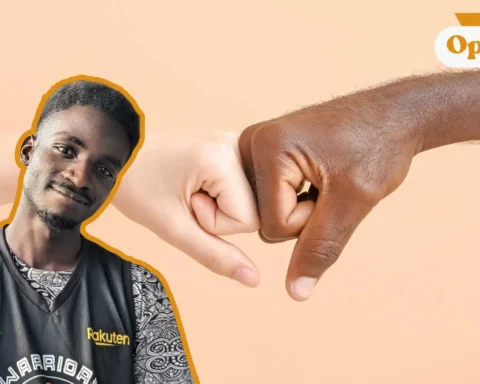Humpty Dumpty sat on a wall, Humpty Dumpty had a great fall.
All the king’s horses and all the king’s men couldn’t put Humpty together again.”
That nursery rhyme may belong to children, but its meaning belongs to us. Britain feels like Humpty Dumpty today: fractured, fragile, fallen from its perch. And no matter how many flags we raise, those cracks aren’t easily stitched back together.
Across the country, the St George’s Cross and Union Jack are being plastered onto lampposts, bridges, and roundabouts in a wave of what supporters call “patriotism.” Operation Raise the Colours has presented itself as a revival of national pride. To “raise the colours” is to reclaim British values, we are told…

On the surface, it is harmless enough. Flags have always stirred us, whether at a World Cup, a royal wedding, or wartime remembrance. But words are slippery. Raise sounds noble. Raze means destruction. And the uncomfortable question is whether this campaign is raising the colours of pride, or razing the colours of diversity.
The controversy is not imagined. Far-right groups such as Britain First have supplied flags. Figures like Tommy Robinson have endorsed the campaign. For critics, this is less about patriotism and more about exclusion; the flag has turned from a symbol to a weapon.

I know exclusion firsthand. As a Sikh in Birmingham, I was told at times that I was not welcome in certain areas. I have also seen groups push for ideas resembling Sharia law at a community level, visions that sit uneasily with the Britain I love. Britain is home to many communities, but those of us who happen to be brown are often treated as one indistinguishable block. That flattening, where our diversity is erased or only crept into the happy and convenient shopkeeper in TV shows, yet we are still labelled outsiders, is itself part of the problem.
And yet, frustrations across the country are real. The grooming gang scandals, many involving Pakistani men, horrified communities and undermined trust. People’s anger cannot simply be brushed aside. But here lies the danger: anger is being directed in only one direction, while uncomfortable truths are ignored.
Take welfare fraud. In 2022/23, the Department for Work and Pensions estimated fraud and error cost Britain £8.3 billion. The majority of prosecutions involved British nationals themselves – overwhelmingly white, English, and Irish. Yet the public story of “benefit cheats” is so often pinned on migrants. Flags, in this context, risk becoming a mask not for unity, but for scapegoating.

The data is telling in other ways, too. 98,799 racially motivated hate crimes were recorded in England and Wales last year, accounting for 70% of the total. Religious hate crimes surged 25%, with Islamophobic offences up 13% and antisemitic offences more than doubling. Behind every flag supposedly raised for pride, there are stories of people who feel less safe, not more.
But if nationalism is one distortion, religious bloc politics is another. Across councils, religion is often wielded as a tool for vote harvesting. Critics accuse even prominent figures such as Sadiq Khan of leaning too heavily on religious identity in politics. Whether or not one agrees, the perception matters. It feeds the belief that politics is being shaped by ethnic and religious loyalties, not shared British values.
And that does not feel like the Britain I grew up believing in. It does not feel like the country that once inspired others with its promises of fairness, free speech, and the rule of law.

This is why I say I love Britain, but not blindly. To love it is to hold it accountable. If we are serious about defending “British values,” then we must confront the negatives on all sides: far-right groups who wield flags as weapons, and community leaders who reduce democracy to religious horse-trading. Both diminish us. Both are un-British in their own way and don’t have me start on the current stock of the motley crew of politicians whose understanding of identity and global affairs is akin to stupidity at the highest incompetence.
The rise of UKIP, the resurgence of the far right, the anger at so-called “public guardians” these are not random outbursts. They are signals of deep dissatisfaction, of people feeling unheard, unsafe, or unrepresented. To ignore these signals is dangerous. To weaponise them is worse, and weaponised they are.
In conversations I’ve had with members of the House of Lords across our platform, from Lord Singh of Wimbledon, Lord Desai, Lord Mohamed Sheikh, Baroness Ushar Prashar, through to our Ambassador Lord Rami Ranger, the theme has been consistent: identity in Britain is more contested than ever. The flag debate is just the surface expression of that deeper uncertainty.
And here is the paradox: if we cannot even define what Britishness is, how can a flag succeed where centuries of struggle have failed?
To hoist a flag for a football match or royal pageant is easy. But to reduce Britishness to a piece of cloth is to dishonour those who fought for something greater: the suffragettes who demanded equality, the abolitionists who ended slavery and indentureship, the countless individuals who challenged injustice in the name of progress.
A flag can inspire. But it cannot solve.
So we return to the real question: Are we raising the colours to unite, or razing the colours to divide?

Let us know your thoughts. If you have burning thoughts or opinions to express, please feel free to reach out to us at larra@globalindiannetwork.com.









